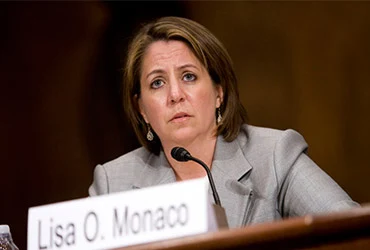Like A Painful Albatross
Hillary Clinton, the presumptive Democratic presidential nominee, tomorrow {Friday} in a speech at Florida International University in Miami, will call for an end to the embargo against Cuba. That's in the hometown of Jeb Bush and Marco Rubio. In fact, Rubio is a part-time teacher at Florida International, a part-time first-term Senator, and a full-time Republican presidential contender. Ms. Clinton's advocacy against the embargo is not meaningful. She is merely following the tea leaves. Three quarters of Americans, 60% of Cuban Americans, and even 59% of Republicans favor ending the embargo, which has harmed Cubans on the island and benefited a few Cubans in Miami and Union City since 1962. Clinton's speech tomorrow will merely highlight the fact that the U. S. democracy is a prisoner to the small but powerful pro-Batistiano faction, which includes Rubio and his mentor Jeb Bush. However, there are members of the U. S. Congress and other independently thinking politicians who admirably seek sane relations with Cuba for decent, humanitarian, and democratic reasons. Clinton is just a poll-watcher.
This Republican member of the U. S. Congress did a brave and decent thing Tuesday, July 28th. Representative Tom Emmer of Minnesota introduced a bill to eliminate the 55-year-old U. S. embargo against Cuba. The majority of Americans, Cuban-Americans, and citizens of the world agree with him. Yet, it won't get done. The uniqueness of America's relations with Cuba will prove, yet again, that the U. S. democracy, the strongest in the world, is not quite strong enough to overcome a vile Cuban policy that has been dictated since 1959 by the most extreme remnants of the long-ago U.S.-backed Batista-Mafia regime on the nearby island. Congressman Emmer, while his effort was laudable, will discover that basic fact.
Tom Emmer narrowly lost a bid to become Governor of Minnesota in 2010. He has represented Minnestoa in the U. S. Congress only since January. He was born 54 years ago in South Bend, Indiana. His bid this week to end the embargo against Cuba is based on the fact that he believes...he knows...it would do two things: {1} Help farmers and businesses in Minnesota; and {2} he is ashamed of the image the embargo against Cuba presents to the rest of the world, especially the Caribbean and Latin America.
Also yesterday -- on Tuesday, July 28th -- Kathy Castor, a Democrat from Tampa -- introduced a bill in the U. S. Congress to end the embargo against Cuba. To support her bill, Congresswoman Castor made an impassioned plea for the other 534 members of Congress to remove the shameful albatross around the necks of Americans and Cubans. In the middle of that plea, she said: "This important step forward will advance human rights and tilt the fortunes of families and entrepreneurs on both sides of the Florida Straits." Of course, there is not a single soul that can dispute those words. Yet there are not enough members of the U. S. Congress who have the guts to support Democrat Kathy Castor and Republican Tom Emmer.
Kathy Castor was born 54 years ago in Miami, Florida. {Photo: Wikipedia}. She has represented Tampa in the U. S. Congress since 2007. With rare courage and decency for a politician, Ms. Castor has defied Florida extremists all her political life because she realizes that America's Cuban policy severely harms Americans, Cuban-Americans, and many innocent people throughout the Caribbean and Latin America.
To improve the lives and welfare of everyday Cubans and to benefit businesses in Tampa and the rest of Florida, Congresswoman Kathy Castor has visited Cuba often. The bill she introduced yesterday to end the embargo is just the latest example of the Herculean work she has done all her political life to combat an American Cuban policy dictated for decades by Florida extremists and sycophants such as the parasitic Bush dynasty. A major article in the St. Petersburg Times yesterday revealed Ms. Castor powerfully assailing Jeb Bush's latest sell-out to ultra-rich billionaires. At a Koch brothers campaign event in New Hampshire, Jeb Bush said Congress should "phase out Medicare," condescendingly pleasing the billionaire Koch bothers and keeping in step with the Bush desire to help the very rich at the expense of everyone else. Kathy Castor's hometown newspaper in St. Petersburg/Tampa quoted her as saying that Jeb Bush's comment was "outrageous," the same description she has applied to longstanding anti-Cuban Bush policies that less brave members of the U. S. Congress and the U. S. media dare not challenge.
As Kathy Castor well knows, democratic principles have never been applied to U.S.-Cuban relations -- especially since 1952, the year the U. S. teamed with the Mafia to support the vile Batista-Mafia dictatorship in Cuba. Since 1959, the year the Cuban Revolution booted the Batistianos off the island, mostly back to their Miami and Union City havens, small conclaves like the one depicted above have dictated America's Cuban policy. In the photo above, on the right, are Cuban-American U. S. Senators Marco Rubio from Miami and Bob Menendez from Union City. They are shown hosting a confab of Cuban dissidents, including the famed Yoani Sanchez. Unfortunately...Sanchez, Rubio, and Menendez believe America's Cuban policy should be eternally left to tiny gatherings like this one. And unfortunately for democracy and people not named Bush, Sanchez, Rubio or Menendez, there are not enough patriots like Kathy Castor around to fight for democratic principles even when it involves the Caribbean island that is ninety miles from Miami.
&******************************&























































